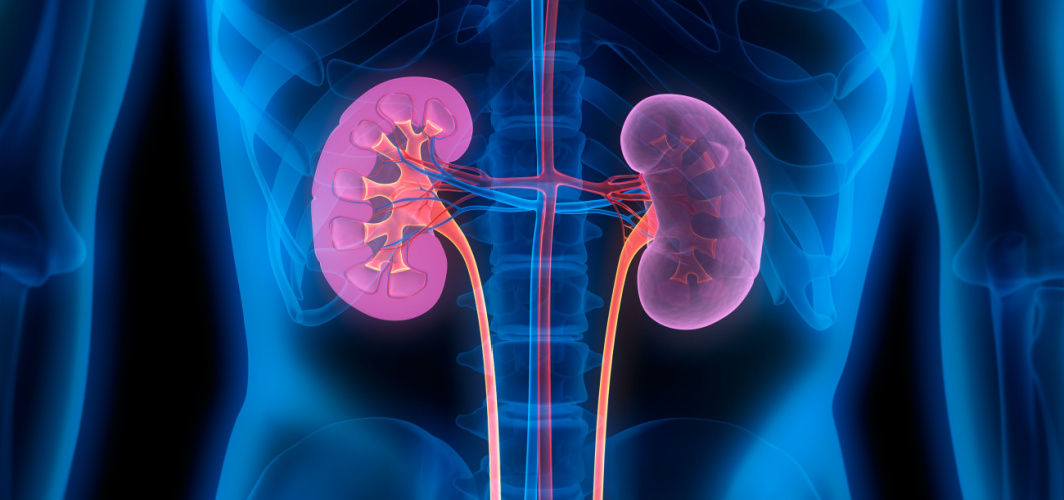Diabetes Management
Diabetic Nephropathy: Are Your Kidneys At Risk?
3 min read
By Apollo 24|7, Published on - 09 January 2023, Updated on - 01 June 2023
Share this article
0
0 like

Uncontrolled diabetes is known to damage the vital organs of the body such as the heart, liver, and kidneys. Diabetic nephropathy is one such serious complication of type 1 and type 2 diabetes that affects kidney function, resulting in excess fluid buildup in the body. The prevalence of diabetic nephropathy in India is around 34.4%. However, early diagnosis, treatment, and lifestyle changes can prevent the development of diabetic nephropathy and prevent its progression to end-stage kidney disease.
Symptoms Of Diabetic Nephropathy
Diabetic nephropathy may not cause any signs or symptoms in its early stages. However, as the condition progresses, a few symptoms that you may notice include:
- Swelling of hands, legs, feet or eyes
- Frequent urge to urinate
- Irregular blood pressure
- Fatigue
- Nausea and vomiting
- Loss of appetite
- Shortness of breath
- Presence of protein in the urine
- Persistent itching
Causes Of Diabetic Nephropathy
The kidneys are made of millions of tiny blood vessel clusters that filter wastes from your blood. These blood vessels tend to get damaged due to diabetes and hypertension (high blood pressure), resulting in reduced kidney function. Over time, poorly controlled diabetes and hypertension ultimately lead to kidney failure.
Risk Factors For Diabetic Nephropathy
If you have diabetes, the following factors can increase your risk for diabetic nephropathy:
- Uncontrolled blood sugar levels
- Uncontrolled blood pressure (hypertension)
- Smoking
- Obesity
- High blood cholesterol
- Family history of diabetes and kidney disease
Prevention Of Diabetic Nephropathy
If you have type 1 or type 2 diabetes, you can take proactive measures to delay the onset and progression of diabetic nephropathy. These include:
- Taking your medications regularly
- Maintaining a healthy Body Mass Index (BMI) by exercising
- Eating a balanced diet
- Routinely visiting your doctor for follow-up
Early diagnosis is key to controlling the progression of the disease. Annual screening for microalbuminuria may be recommended by your doctor. You can also talk to your doctor to know the tests that you must undergo to reduce your risk.
Treatment Of Diabetic Nephropathy
Treatment for diabetic nephropathy usually focuses on reducing the signs and preventing progression. The treatment includes:
- Medications to control blood pressure, blood sugar, and cholesterol levels.
- Medications to lower kidney inflammation and scarring.
In advanced cases of diabetic nephropathy, dialysis (a process to remove waste from the blood using mechanical support) or organ transplant may be recommended.
FAQs
1. What are the stages of diabetic nephropathy?
There are five stages of diabetic nephropathy:
Stage 1: Kidney damage is present, but there is normal kidney function with a glomerular filtration rate (GFR) of 90% or above. GFR depicts how well your kidneys are working.
Stage 2: Kidney damage with some loss of function and a GFR of 60% to 90%
Stage 3: Mild to severe loss of kidney function and a GFR of 30% to 59%
Stage 4: Severe loss of kidney function and a GFR of 15% to 29%
Stage 5: Kidney failure and a GFR under 15%
2. Can diabetic nephropathy be cured?
Diabetic nephropathy cannot be cured completely. However, its progression can be controlled significantly by effective monitoring and controlling of blood sugar and blood pressure levels.
3. How long does it take for diabetic nephropathy to develop?
Diabetic nephropathy usually develops gradually. Therefore, a diabetic can modify their lifestyle and lower their risk before the condition develops.
4. How is diabetic nephropathy diagnosed?
If you have diabetes and/or hypertension, your doctor would recommend blood tests, x-rays and ultrasounds to assess your kidney structure, size, and functioning. You may also need a CT scan or MRI to identify blood circulation in your kidneys and determine if your condition has progressed to diabetic nephropathy.
If you need expert guidance,
Consult An Apollo Nephrologist
You can also manage your diabetes like a pro with Apollo 24|7's 12-week empower programme.
Medically reviewed by Dr Sonia Bhatt.
Diabetes Management
Leave Comment
Recommended for you

Diabetes Management
Numbness and Tingling: A Sign of Diabetes?
Diabetic neuropathy, characterised by tingling and numbness, can develop due to uncontrolled blood sugar levels. Different types of neuropathy can affect various parts of the body. There are measures you can take to manage and slow down the progression of diabetic neuropathy. It is important to consult a doctor if experiencing symptoms or to get screened for diabetic neuropathy.

Diabetes Management
Sugar Substitutes: Is It Safe for You?
While sugar substitutes are helpful to manage conditions like diabetes, the consumption of excessive amounts can still raise blood sugar and add calories to the body.

Diabetes Management
How Many Steps Should You Walk to Manage Your Diabetes?
Walking is a valuable tool for managing diabetes, improving insulin sensitivity, controlling blood sugar, aiding weight management, and enhancing heart health. While the ideal step count varies among individuals, aiming for 150 minutes of moderate-intensity aerobic activity per week is a common guideline. The popular "10,000 steps" target is beneficial but not mandatory. It's essential to personalise your approach based on factors like age, fitness level, and diabetes type. Consult with a healthcare provider for individualised step goals, start gradually, monitor blood sugar, and prioritise safety to effectively leverage walking as part of your diabetes management plan.
Subscribe
Sign up for our free Health Library Daily Newsletter
Get doctor-approved health tips, news, and more.
Visual Stories

8 Fruits That are Incredibly Healthy for Diabetes
Tap to continue exploring
Recommended for you

Diabetes Management
Numbness and Tingling: A Sign of Diabetes?
Diabetic neuropathy, characterised by tingling and numbness, can develop due to uncontrolled blood sugar levels. Different types of neuropathy can affect various parts of the body. There are measures you can take to manage and slow down the progression of diabetic neuropathy. It is important to consult a doctor if experiencing symptoms or to get screened for diabetic neuropathy.

Diabetes Management
Sugar Substitutes: Is It Safe for You?
While sugar substitutes are helpful to manage conditions like diabetes, the consumption of excessive amounts can still raise blood sugar and add calories to the body.

Diabetes Management
How Many Steps Should You Walk to Manage Your Diabetes?
Walking is a valuable tool for managing diabetes, improving insulin sensitivity, controlling blood sugar, aiding weight management, and enhancing heart health. While the ideal step count varies among individuals, aiming for 150 minutes of moderate-intensity aerobic activity per week is a common guideline. The popular "10,000 steps" target is beneficial but not mandatory. It's essential to personalise your approach based on factors like age, fitness level, and diabetes type. Consult with a healthcare provider for individualised step goals, start gradually, monitor blood sugar, and prioritise safety to effectively leverage walking as part of your diabetes management plan.